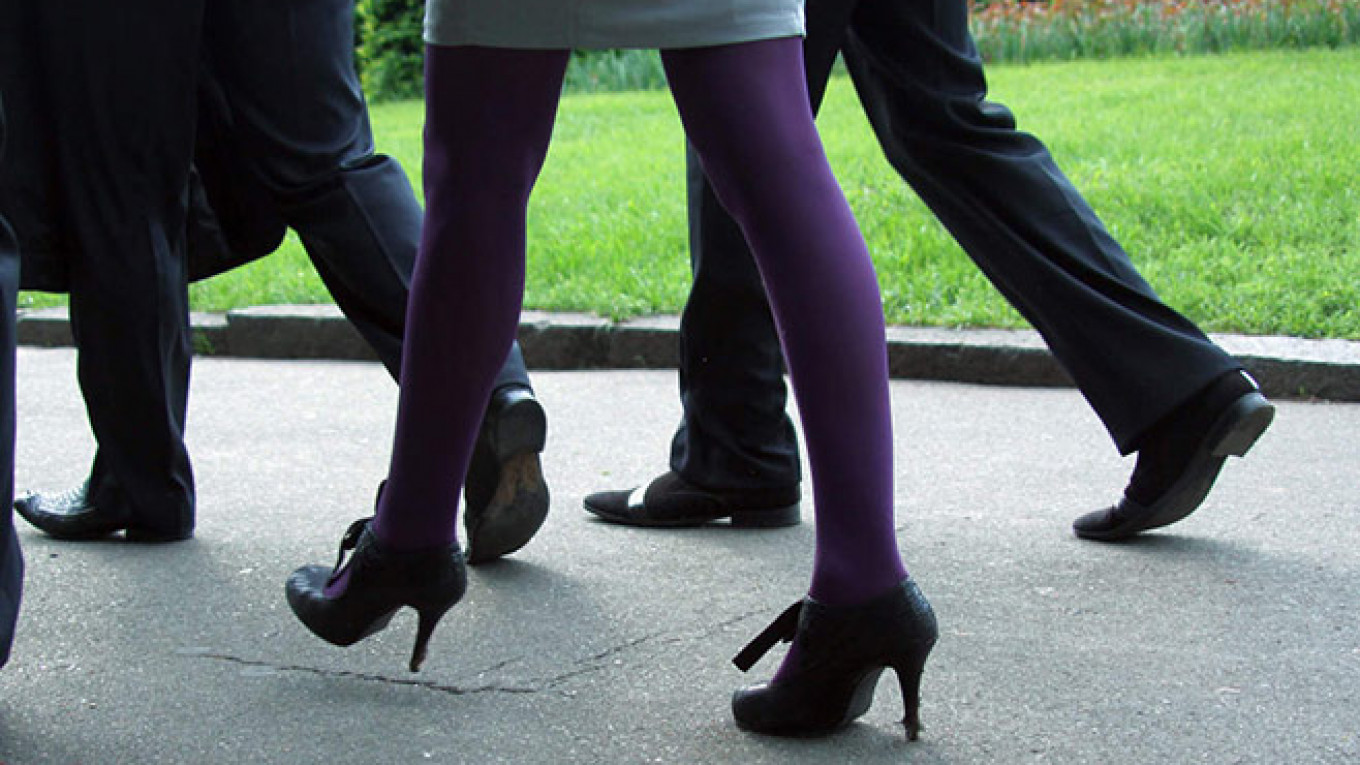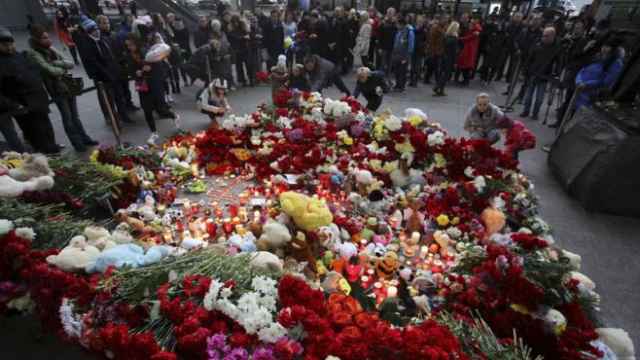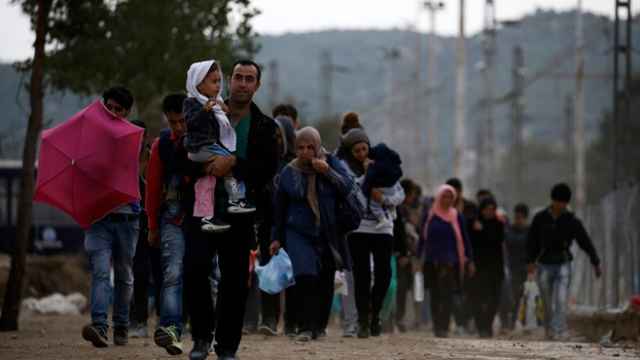For women's rights in Russia, the situation is not cut-and-dried. Conservative — one might even say backward — ideas about "a woman's place" certainly get a lot of airtime. But even in a society traditionally viewed as politically passive, a recent call to roll back abortion access was met with instant resistance.
Speaking personally, I've always found Russia to be a surprisingly mixed bag when it comes to women's rights. Working mothers, for example, are a normalized phenomenon in modern Russia, no matter how much conservatives beat their chests on the subject of women needing to get back into the kitchen (and preferably barricade themselves in there, and never be heard from again).
When I went back to work soon after having a baby hardly anyone questioned my decision to do so, or to pump milk at work — in fact, the one colleague who genuinely attempted to prevent me from pumping met with such outrage that I almost felt bad for him. Out in public, I've always found Russians to be much more understanding, even indulgent, of overtired women with small children — they'll generally give up their seats on the metro, help you get the stroller up a flight of stairs, offer to let you go to the front of the huge grocery store line and let you breastfeed in peace.
While a depressing number of my American acquaintances and even friends wound up accusing me of "trying to have it all" and "failing my child," Russians mostly have a shrug-and-get-on-with-it attitude to working motherhood. That obviously has a lot to do with the fact that children aren't viewed as a "quirky lifestyle choice" in Russia, but a natural part of life — and yet it also has to do with the fact that Russians, including the tiny middle class and the pampered elite, understand basic survival so much better than the American chattering classes do. Millions of Russian families would never make it if women were forced to stay at home. That's the economic reality.
The days of an agrarian economy, where male brute strength was so thoroughly valued, are getting further and further away in the rearview mirror. Russian families remain traditionally small, and even though the Church pushes the ideal of at least five children, few families can realistically afford this (and should the economy further worsen, that number will be fewer still).
Hypermasculinity is celebrated — but then again, so is hyperfemininity, which means that femininity in general isn't so much pathologized as it is exaggerated. Even attitudes to domestic violence — idiotic sayings such as "if he hits you, he loves you" notwithstanding — are slowly (too slowly for many of the victims) beginning to change, with domestic violence now an actual topic of discussion, as opposed to something to be shamefully covered up.
Of course, there is a big difference between the way women are treated in the countryside and in urban centers. But Russia overall is generally becoming more urbanized.
Even as conservatives hearken back to the stereotypical image of the Russian woman as a village girl in a scarf, helpless, male-dependent, and "pure," the average Russian today lives in a city and has a college diploma. This goes for both men and women.
Russia's "village romance" has long been over. Russian women today have made too much progress to go quiet into that good night simply because the government is now flirting with bearded conservatives as opposed to suit-clad modernizers. Time to face the music.
Natalia Antonova is an American playwright and journalist.
A Message from The Moscow Times:
Dear readers,
We are facing unprecedented challenges. Russia's Prosecutor General's Office has designated The Moscow Times as an "undesirable" organization, criminalizing our work and putting our staff at risk of prosecution. This follows our earlier unjust labeling as a "foreign agent."
These actions are direct attempts to silence independent journalism in Russia. The authorities claim our work "discredits the decisions of the Russian leadership." We see things differently: we strive to provide accurate, unbiased reporting on Russia.
We, the journalists of The Moscow Times, refuse to be silenced. But to continue our work, we need your help.
Your support, no matter how small, makes a world of difference. If you can, please support us monthly starting from just $2. It's quick to set up, and every contribution makes a significant impact.
By supporting The Moscow Times, you're defending open, independent journalism in the face of repression. Thank you for standing with us.
Remind me later.








